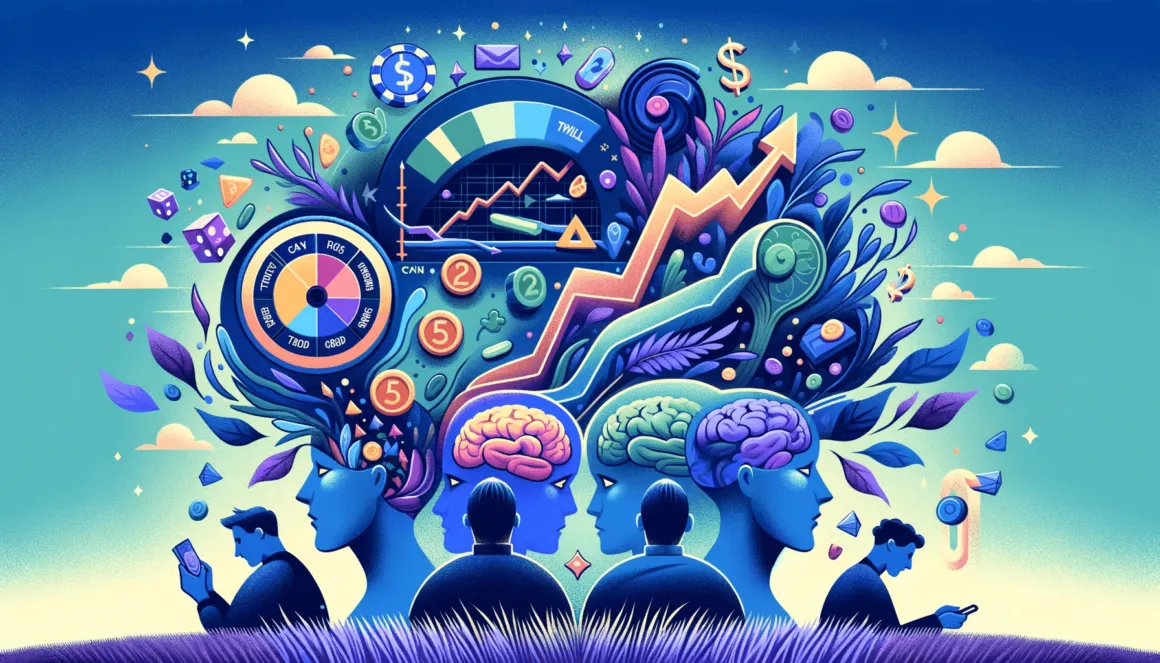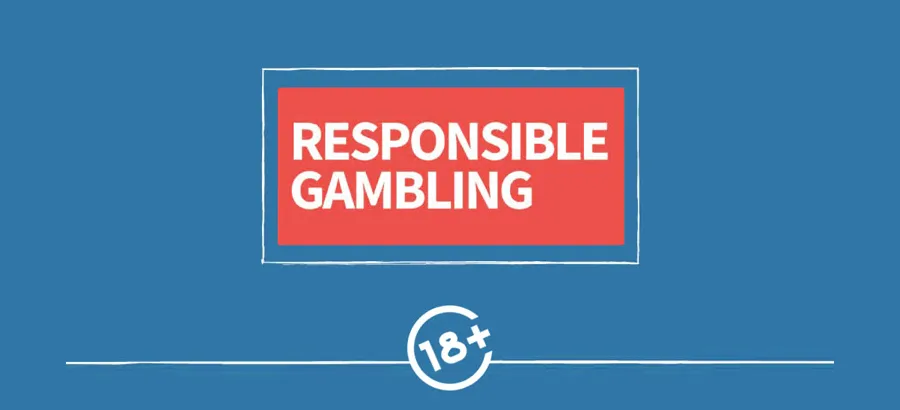In recent years, online gaming has seen a surge in popularity due to its convenience and accessibility. Among the various types of online gaming, one that has gained significant attention is crash gambling. This type of betting involves placing a wager on a graph that represents the rise and fall of a number, with the objective of cashing out before the graph crashes. While it may seem like a simple and fun game, there is more to it than meets the eye.
Crash gambling involves a high level of risk-taking and decision-making, which can be influenced by various psychological factors. In this article, we will delve into the psychology behind crash gambling and understand the mindset of players who engage in this type of betting. We will also explore the potential consequences of this form of gambling and how it can affect an individual’s overall well-being.

1. The Allure of Risk-taking: Why People are Attracted to Crash Gambling
The Thrill Factor
The human brain is wired to seek pleasure and avoid pain. This is why activities that involve risk-taking, such as extreme sports or gambling, can be highly appealing to some individuals. The thrill of not knowing the outcome and the possibility of winning big can release dopamine, a neurotransmitter associated with pleasure, in the brain. This rush of dopamine can create feelings of excitement and euphoria, making the activity itself addictive.
Crash gambling, in particular, offers a unique experience where players can witness their potential winnings increase exponentially within seconds. This fast-paced and unpredictable nature of the game can be highly enticing to those who enjoy taking risks and seeking thrills.
The Illusion of Control
Another reason why people are attracted to crash gambling is the illusion of control. Studies have shown that humans tend to overestimate their abilities and believe they have more control over outcomes than they actually do. In crash gambling, players have the option to cash out at any time before the graph crashes, giving them a sense of control over their winnings. This illusion of control can be a powerful motivator for individuals who are drawn to risk-taking activities.
Social Influence
In today’s digital age, social media has a significant impact on our lives. It is not uncommon to see people sharing their big wins on crash gambling sites or influencers promoting these types of games. This can create a social pressure to join in and try it out for oneself. The fear of missing out (FOMO) can also play a role in attracting individuals to this form of gambling, as they do not want to be left out of the action and potential rewards.
2. The Role of Cognitive Biases in Crash Gambling
Gambler’s Fallacy
One cognitive bias that can heavily influence an individual’s decision-making in crash gambling is the gambler’s fallacy. This is the belief that previous outcomes can influence future events, even though the two events are statistically independent. For example, if a number has not crashed in several rounds, some players may believe that it is due for a crash and place a higher wager on it. This thought process is flawed, as each round has an equal probability of crashing regardless of past results.
The gambler’s fallacy can lead players to make irrational decisions and chase their losses, hoping for a big win in the next round. This can result in significant financial losses and can be detrimental to one’s well-being.
Confirmation Bias
Another cognitive bias that can affect players in crash gambling is confirmation bias. This is the tendency to seek out information that supports one’s existing beliefs and discount information that goes against it. In the context of crash gambling, if a player believes that a certain number is lucky for them, they may look for evidence to support this belief, such as past wins with that number. This can lead to an overconfidence in their decisions and may result in them placing higher wagers on that number.
Confirmation bias can also manifest in the way players interpret the graph in crash gambling. They may see patterns and trends that are not there, leading them to make incorrect assumptions about when to cash out.
3. The Impact of Losses on Players’ Behavior

Loss Aversion
One of the key factors that influence an individual’s behavior in crash gambling is the fear of losing. Studies have shown that people feel the pain of a loss twice as much as the pleasure of a win. This concept, known as loss aversion, can be particularly relevant in crash gambling, where players have the option to cash out before the graph crashes. The fear of losing what they have already won can lead players to cash out early, resulting in smaller winnings than if they had waited for the graph to reach its peak.
Loss aversion can also cause players to chase their losses and place higher wagers in an attempt to recoup their losses. This can create a vicious cycle of chasing losses, resulting in significant financial and emotional distress.
Sunk Cost Fallacy
The sunk cost fallacy is another psychological phenomenon that can contribute to players’ behavior in crash gambling. This is the idea that people are more likely to continue with a course of action if they have already invested time, money, or effort into it, even if it is irrational to do so. In the context of crash gambling, this could mean that players continue placing wagers even when they are on a losing streak, hoping to eventually win back their initial investment.
The sunk cost fallacy can also explain why some players struggle to walk away from crash gambling, even when they know it is causing them harm. They may feel that they have invested too much time and money into it to stop now.
4. The Potential Consequences of Crash Gambling on an Individual’s Well-being
Financial Implications
The most significant consequence of crash gambling is its potential impact on an individual’s financial well-being. As with any form of gambling, there is a risk of losing money in crash gambling. The fast-paced nature of the game and the illusion of control can cause players to place higher wagers than they can afford, leading to significant financial losses.
Moreover, chasing losses and falling prey to cognitive biases can also contribute to financial difficulties, as players may continue placing bets in an attempt to recoup their losses. This pattern of behavior can quickly spiral out of control and lead to severe financial consequences, such as debt, bankruptcy, and even homelessness.
Emotional Distress
Apart from the financial implications, crash gambling can also have a significant impact on an individual’s emotional well-being. The constant ups and downs of wins and losses can create a rollercoaster of emotions, ranging from elation to despair. This can take a toll on one’s mental health, leading to anxiety, depression, and other psychological issues.
In addition, the potential for addiction and the loss of control over one’s gambling habits can also cause immense emotional distress. The guilt, shame, and self-blame associated with problem gambling can be overwhelming and can greatly affect an individual’s quality of life.
Social Isolation
Problem gambling can also lead to social isolation. As individuals become more consumed with their gambling habits, they may withdraw from social activities and relationships. This can lead to feelings of loneliness and can further exacerbate any underlying psychological issues.
Moreover, the shame and stigma associated with gambling addiction may prevent individuals from seeking help and support from others, causing them to suffer in silence.
5. Strategies for Responsible Gambling
Set Limits and Stick to Them
One way to ensure responsible gambling in crash gambling is to set limits for oneself before starting to play. This could include a time limit, a budget for how much money one is willing to spend, and a loss limit. It is essential to stick to these limits and not deviate from them, even if one is tempted to continue playing.
Avoid Chasing Losses
As we have discussed, chasing losses can be detrimental to one’s well-being and can lead to further financial difficulties. It is important to recognize when one is chasing losses and take a break from gambling to prevent any potential harm.
Seek Support
If an individual feels that their gambling habits are getting out of control, it is crucial to seek support from friends, family, or a professional therapist. There are also helplines and support groups available for those struggling with problem gambling.
6. The Need for Responsible Gaming Practices and Regulations

Protecting Vulnerable Individuals
While crash gambling may seem like a harmless game, its fast-paced and high-risk nature can be particularly dangerous for vulnerable individuals, such as minors and those with existing gambling addiction. It is therefore crucial for gaming companies to implement responsible gaming practices and regulations to protect these individuals from potential harm.
These measures could include age verification processes, self-exclusion options, and providing educational resources on responsible gambling.
Promoting Responsible Behavior
Responsible gaming practices can also promote responsible behavior among players. By setting limits and implementing other safety measures, individuals can learn to gamble in a controlled and mindful manner, reducing the risk of developing harmful habits.
Moreover, promoting responsible behavior can also help reduce the negative stigma associated with gambling addiction, encouraging more individuals to seek help and support without fear of judgment.
Conclusion: Understanding the Complexities of Crash Gambling
In conclusion, the psychology behind crash gambling is a complex subject that involves various factors such as risk-taking, cognitive biases, and the potential consequences on an individual’s well-being. While it can be an exciting and entertaining form of online gaming, it is essential to understand the potential risks involved and practice responsible gambling habits. By setting limits, recognizing cognitive biases, seeking support when needed, and promoting responsible gaming practices, we can create a safer and more enjoyable environment for all individuals engaging in crash gambling.
